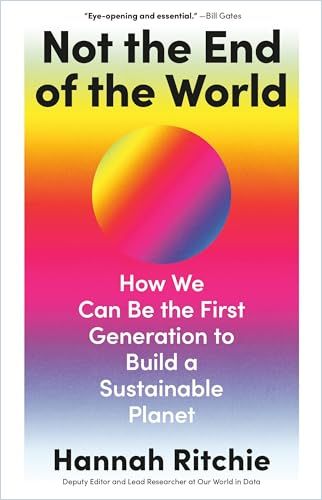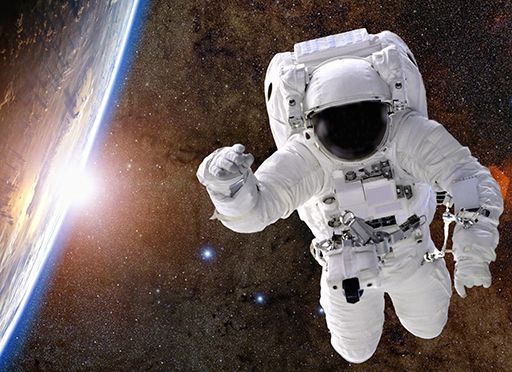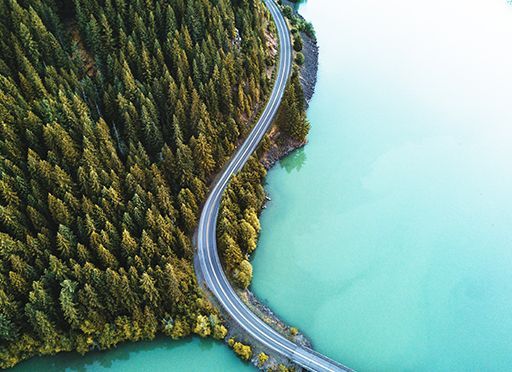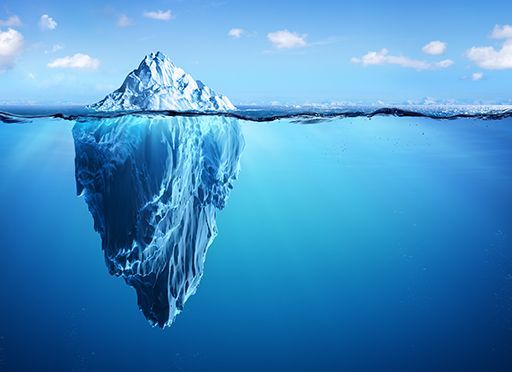Research and analysis from an Oxford University expert shows some environmental problems are solvable.

Fix the Earth
Hannah Ritchie, a senior researcher in global development at the University of Oxford, offers research and analysis, robust hope, and advice on how people can thrive while protecting the Earth’s crucial ecological systems.
Repair Environmental Damage
Society has increased the human lifespan by boosting food security, reducing child and maternal deaths, educating children better, enabling more people to earn a livable income, and meeting local needs for energy, clean water, and sanitation.
However, human action also has polluted the air, altered the climate, destroyed forests, produced food wastefully and wasted food, endangered species, polluted the oceans with plastics, and harmed ocean life. Climate-related disasters are often in the news, but the death rates from such disasters are lower now than they were in the 1900s.
And, as Hannah Ritchie reports with careful optimism, improvement may be in the offing as overall economic growth enables new technologies that will help both the environment and impoverished people.
What might at first seem like immovable barriers are not destined to stay that way.Hannah Ritchie
Sources of air pollution include industry, transportation, agricultural chemicals, the production of electricity, and the burning of biomass. As countries develop, the air pollution they generate tends to increase and then decline. Technology has hastened this decline, for example, often by making low-carbon energy choices cheaper than high-emission ones. This means some developing countries may be able to avoid the air pollution cycle by bypassing fossil fuels and opting for eco-friendly options early in their development process. Even switching from cook fires to clean stoves can put a huge dent in global air pollution, as can preparing fields for planting without burning them.
The main causes of climate change are the destruction of vegetation and the emissions of greenhouse gases from burning fossil fuels. Worldwide, the rate of forest loss has dropped. Even Amazon deforestation has slowed.
However, greenhouse gas emissions continue to increase overall, though Ritchie reports that they are decreasing per capita. China produces the most greenhouse gases, followed by the United States and the European Union. Some wealthy countries emit less greenhouse gas per person than less developed nations do, and emissions have declined in many countries as their standard of living has risen. To achieve the crucial goal of zero greenhouse emissions, nations must reduce emissions from three sources: energy production, food production, and industry.Climate-friendly transportation options include enhanced public transit, and the use of electricity, solar power, and hydrogen to power vehicles and aircraft.
The food system must change. Most notably, people can have an impact by eating more plant-based food and less meat and dairy. Consumers should use meat substitutes instead of eating meat, replace dairy with plant milk, and decrease their personal food waste. Farmers should feed cows grain instead of grass. However, simply deciding to eat more local or organic foods makes little difference. Recycling, reducing packaging, and changing to LED light bulbs also generate only a scant positive impact.
If we’re to build a sustainable world for the future then we all have to tread with the lightest of footprints.
Hannah Ritchie
Oil palms produce oil more efficiently than other crops, so oil palm plantations could save forests. However, growing other oil crops, like cattle ranching and producing products from trees all threaten tropical forests. Society must reduce its use of trees for fuel and forestland for farming. Wealthy nations should pay poorer ones to leave their forests intact.
Biodiversity
The agricultural industry produces twice the amount of food the current population needs. A more efficient system could sustainably feed 10 billion people. Significant, destructive waste results from feeding crops to livestock, burning crops for fuel, and letting them go to waste.
Today’s farming wastes water, disrupts ecosystems, utilizes massive amounts of land, and drives deforestation and loss of biodiversity. Improving crop yields can reduce these impacts. The amount of land needed to produce food is already decreasing, and the need for fertilizer may soon decline.
People should value biodiversity and be concerned about endangered species. The loss of wild mammals is due to hunting, habitat disruption, drought, deforestation, and domestication. To protect biodiversity, focus on solving the environmental issues that harm it – such as air and water pollution, the use of chemical fertilizers, and deforestation.
Plastics
Plastic production – about half of it for packaging – has more than doubled since 2000. Plastic carries polluting chemicals and garbage to the ocean where it entangles or injures animals or they eat it. A mass of plastic three times the area of France is floating in the ocean. Floating plastics disrupt the balance of nature, by – among other things – moving organisms from place to place.
While we can’t realistically eliminate waste completely, we can eliminate plastic pollution.
Hannah Ritchie
Rich countries should avoid sending plastics to countries that don’t manage them well and should support improved waste management and recycling. Producers should make plastics easier to recycle. Today’s mechanical recycling degrades the quality of plastic for reuse, and chemical recycling is costly.
In the 1980s, fish populations declined dramatically. Since then, stocks have rebounded. Many salmon, tuna, cod, and haddock fisheries off Europe and North America are maintaining a stable population. South American, Asian, and African fish stocks are not.Decreased demand and whale protection laws mean that commercial fisheries harvest almost no whales.
To protect ocean life, people can reduce their consumption of fish, shop with biodiversity and climate stability in mind, buy fish with sustainability certification, set fishing quotas, limit the capture of non-target species, and establish and enforce fishing bans in protected areas. With discretion, fish, including farmed fish, can become an environmentally friendly food.
Cause For Hope
Hannah Ritchie, a senior researcher in global development at the University of Oxford, parses contemporary research to debunk some doomsday scenarios and to remind readers that others may yet occur.
Humanity is in a truly unique position to build a sustainable world.
Hannah Ritchie
She offers specific prescriptive actions, some that people must undertake and others that remain under the control of governments worldwide. Ritchie’s specificity, familiarity with up-to-the-minute research, ability to break research results down into the language of laypeople, and apparent lack of any political agenda make this a must-read for policy-makers, economists, investors, students of the environment, and all concerned citizens.







